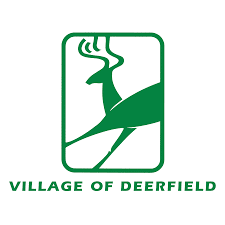

The recent announcement of Celadon Partners’ $70 million senior housing project in Deerfield underscores a trend of reimagining underutilized commercial properties to meet new housing needs. The development, aimed at expanding senior living options while avoiding the strain of additional students on the local school district, represents both a strategic opportunity and a significant challenge in the current financing and market environment.
While the project shows promise, particularly as communities look for alternative uses for outdated spaces, the realities of converting office properties into residential use introduce additional hurdles. These issues highlight developers’ broader challenges in suburban markets like Deerfield and beyond.
One of the critical difficulties in projects like Celadon’s senior housing development stems from the structural and design differences between office buildings and residential spaces. While the idea of repurposing underperforming office properties to meet housing needs sounds promising, the reality of the conversion process is far more complex:
These structural and financial challenges make office-to-residential conversions a difficult but potentially rewarding strategy for developers seeking to address housing demand in suburban markets.
Deerfield’s $70 million project also shines a light on a broader issue facing the North Shore: market saturation in the senior housing sector. Communities like Deerfield, Northbrook, and Lake Forest already have a high concentration of independent living, assisted living, and memory care facilities. For Celadon’s project to succeed, it will need to stand out in a crowded market while proving that demand for senior housing still exists.
The current financing environment further complicates the situation. Rising interest rates and cautious lending practices have made it harder for developers to secure funding, particularly for projects in niche markets like senior housing. In this climate, developers must demonstrate clear financial viability, strong demand, and long-term sustainability to move forward.
Despite these challenges, there are reasons to remain cautiously optimistic about Celadon’s senior housing project:
Celadon Partners’ $70 million senior housing project in Deerfield highlights both the opportunities and the difficulties of adapting suburban real estate to meet evolving market demands. While the project faces hurdles in terms of market saturation, financing, and office-to-residential conversion complexities, it also represents a thoughtful approach to community growth.
By avoiding pressure on local schools and addressing the housing needs of an aging population, this development aligns with Deerfield’s vision for sustainable, responsible growth. However, its success will depend on navigating the challenges of modernizing an office structure for residential use, differentiating itself in a competitive senior living market, and securing financing in a volatile economic environment.
This project reflects a larger trend across suburban markets, where developers are reimagining outdated commercial spaces to create meaningful, long-term value for investors and the community. While caution is warranted, Deerfield’s initiative also signals optimism for what thoughtful, well-executed redevelopment can achieve in the face of market challenges.
Chicago’s office market remains under pressure in 2025, with new sublease listings at even the…
https://youtu.be/0VoJ6DoPMPI In a significant announcement for the Chicagoland business community, Vantive, the newly spun-off kidney…
After a long tenure at Soldier Field, the Chicago Bears are on the clock for…
In today’s volatile global trade environment, industrial real estate investors and occupiers are navigating one…
As the global economy braces for another wave of trade disruption, companies are being forced…
In an era of global uncertainty, few systems feel the heat of economic volatility like…